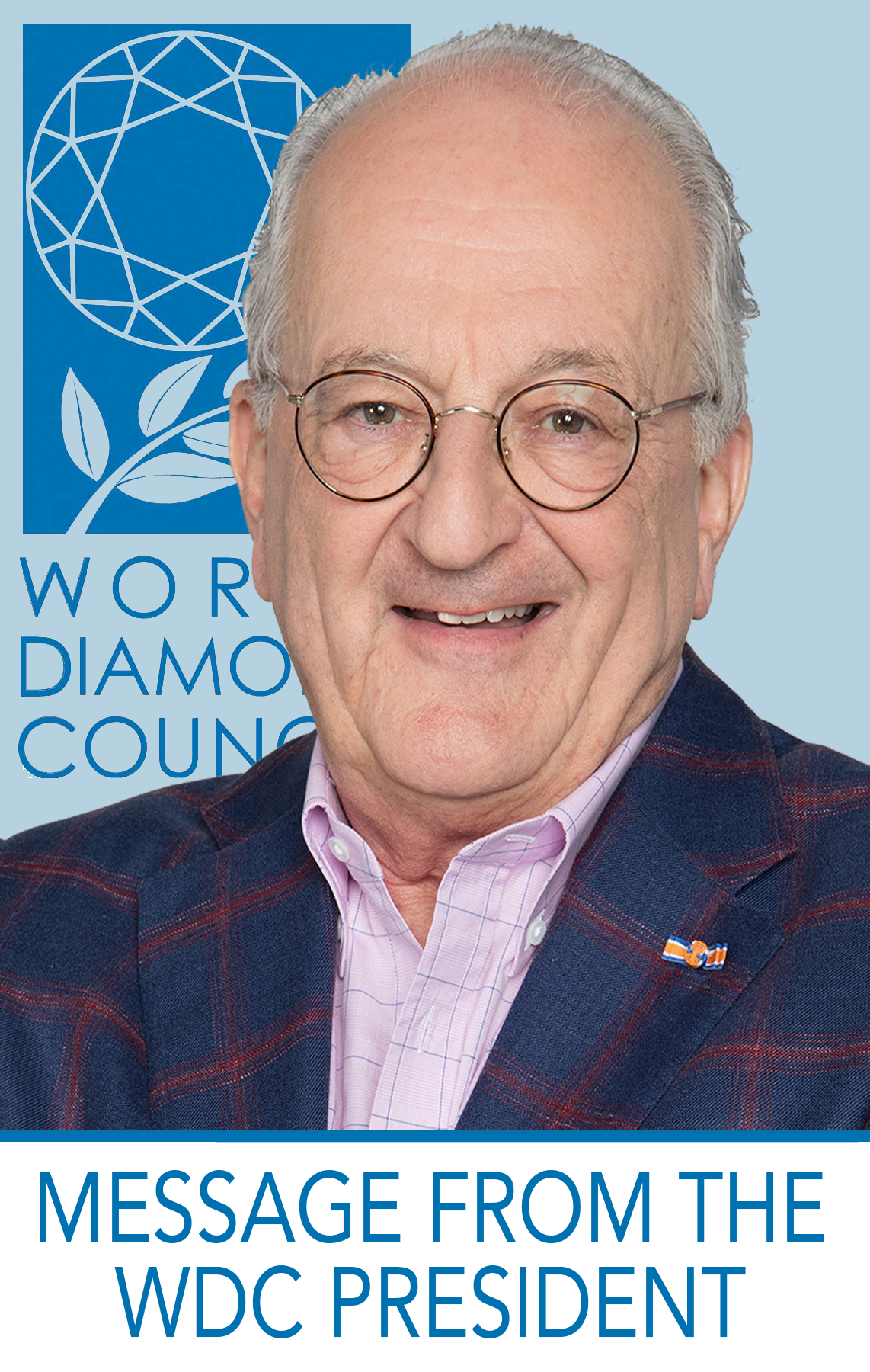TAKING STOCK, BEFORE THE 2021 KP INTERSESSIONAL

Dear colleagues and friends,
With the 2021 Intersessional Meeting of the Kimberley Process (KP) to be held on a digital platform next week, after a year during which neither of the two regularly scheduled KP meetings took place, it’s an opportune time to review the various subjects on which the WDC has been working, and to consider what we are preparing for this very first virtual meeting of the KP.
But first, we need to express our solidarity with the so many countries where COVID-19 remains a danger to much of their populations. This is especially so in India, which is now suffering a number of infections that is higher than any other country in the world, creating a situation of immense concern. And this is not simply because nine out of ten diamonds are polished there. More so, we worry about the health and wellbeing of our colleagues, their staffs and their families, and all Indians.
In our industry we cannot stand idly by. The WDC, the International Diamond Manufacturers Association and the World Federation of Diamond Bourses have all contributed to the buying of much needed medications and other supplies for our colleagues in India. We pray for an end to the crisis.
At WDC, we have also been working hard on the introduction of the new System of Warranties. This is not strictly a KP matter, but it is an important step for the entire industry. We are planning to launch the new SoW after the summer break, when many of us return from our holidays.
As we always do, but especially ahead of the Intersessional, we are looking at the most important issues concerning the responsible sourcing of rough diamonds. As always, the political, military and public security situations in some countries are fluid and dynamic. We are monitoring closely what is happening in the Central African Republic, especially now that the KP’s new Operational Framework hardly seems to be working efficiently.
We are closely watching the situation in other countries as well. One of the problems is that when the KP Civil Society Coalition and other NGOs flag human rights issues, they frequently are difficult to tackle within the framework of the KP. This is because they do not always relate to goods that fall strictly under the current definition of conflict diamonds, and thus not all governments are inclined allow such discussions.
At the Intersessional, the WDC is especially looking forward to the sessions focusing on what has been defined as the Seven Principles for Responsible Diamond Sourcing. To recap, they include complying with internationally accepted standards relating to (1) human rights, (2) labor rights, (3) environmental practices, (4) anti-corruption and (5) anti-money laundering, and (6) building capacity by supporting the development of communities in the mining and production areas and (7) through clear disclosure properly distinguishing between natural and synthetic diamonds. For efficiency, they are being called “Frame 7” in short, and it is a joint proposal by the KP Chair, the Russian Federation, and the KP Vice Chair, the Republic of Botswana. Accepting and promoting these principles would be a important step forward. We need strong government support there. It should not be the sole responsibility of the industry.
And last, but certainly not least, we need to listen carefully to what our consumers are looking for, and those are products whose worth is not only measured materially, but socially as well. In today’s world one can hardly purchase an item in a supermarket or a garment in a clothing store without reading about the steps taken by that industry that produced them in respect to the UN’s Sustainable Development Goals. We need to embrace all these as well, if we want to be able to sell our diamonds in the future.
Edward Asscher
WDC President
June 2021





